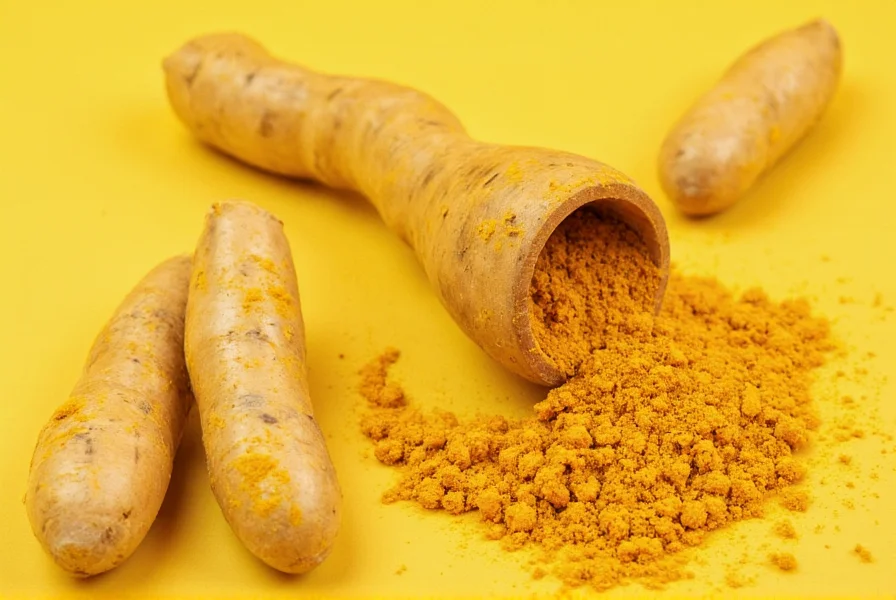Curcumin, turmeric's primary bioactive compound, has gained attention in weight management research due to its potential anti-inflammatory and metabolic effects. While not a magic solution, understanding how to properly incorporate turmeric into your wellness routine can provide supplementary support for your weight goals.
The Science Behind Turmeric and Weight Management
Multiple clinical studies have examined curcumin's role in weight management. A 2019 meta-analysis published in Phytotherapy Research reviewed 11 trials involving over 1,000 participants. Researchers found that curcumin supplementation was associated with modest but statistically significant reductions in body weight, BMI, and waist circumference compared to placebo groups.
The mechanisms appear multifaceted:
- Anti-inflammatory effects: Chronic inflammation is linked to obesity and metabolic disorders. Curcumin's potent anti-inflammatory properties may help address this underlying factor.
- Adipogenesis regulation: Some research suggests curcumin may influence fat cell development and metabolism.
- Improved insulin sensitivity: Better blood sugar regulation can support healthy weight management.
- Enhanced fat metabolism: Animal studies indicate curcumin may boost enzymes involved in fat breakdown.
It's crucial to understand that these effects are modest and work best as part of a comprehensive approach to weight management—not as a standalone solution.
How to Use Turmeric for Weight Management: Evidence-Based Protocol
Simply adding turmeric to your food won't yield significant weight benefits. To maximize potential effects, follow this evidence-based approach:
Optimal Dosage and Form
Research typically uses standardized curcumin extracts rather than plain turmeric powder. For weight management support:
- Dosage: 500-2,000 mg of curcumin daily, divided into two doses
- Form: Look for products with 95% curcuminoids
- Enhanced absorption: Choose formulations with piperine (black pepper extract) or phospholipids
| Form | Curcumin Content | Recommended Daily Dose | Absorption Rate |
|---|---|---|---|
| Turmeric powder | ~3% curcumin | 3-5 grams | Very low |
| Standardized extract | 95% curcuminoids | 500-1,000 mg | Moderate |
| Piperine-enhanced | 95% curcuminoids + 5-10mg piperine | 500-1,000 mg | 20x higher |
| Phospholipid-bound | Curcumin phytosome | 500 mg | 29x higher |
Timing and Consumption Tips
When learning how to take turmeric for weight loss effectively, timing matters:
- With meals: Take curcumin supplements with your largest meals to enhance absorption and support metabolic processes during digestion
- With healthy fats: Consume with avocado, olive oil, or nuts as curcumin is fat-soluble
- With black pepper: Include 5-10 mg of piperine (found in 1/4 teaspoon black pepper) to increase absorption by up to 2,000%
- Consistency: Daily use for at least 8-12 weeks is necessary to potentially see benefits

Realistic Expectations for Turmeric Weight Loss Results
Understanding how long does it take for turmeric to help with weight loss is crucial for setting appropriate expectations. Clinical studies typically show:
- Modest weight loss of 1-3 pounds over 8-12 weeks
- More significant reductions in waist circumference than overall body weight
- Greater benefits when combined with dietary changes and exercise
- Improved metabolic markers even when weight loss is minimal
Turmeric works best as part of a comprehensive approach that includes calorie control, regular physical activity, adequate sleep, and stress management. It's not a replacement for these fundamental weight management strategies.
Safety Considerations and Potential Side Effects
While turmeric is generally safe, certain precautions apply when using it for weight management:
- Digestive issues: High doses may cause nausea or diarrhea in some people
- Blood thinning: Curcumin has mild anticoagulant properties—consult your doctor if taking blood thinners
- Gallbladder concerns: May stimulate bile production; avoid if you have gallstones
- Pregnancy: High-dose supplements aren't recommended during pregnancy
Start with lower doses (500 mg daily) and gradually increase to assess tolerance. Always consult with a healthcare provider before starting any new supplement regimen, especially if you have underlying health conditions or take medications.
Integrating Turmeric into a Comprehensive Weight Management Plan
For those exploring how to use turmeric for weight loss effectively, remember it's just one component of a successful strategy:
- Nutrition: Focus on whole foods, adequate protein, and controlled portions
- Physical activity: Aim for 150 minutes of moderate exercise weekly
- Sleep: Prioritize 7-9 hours of quality sleep nightly
- Stress management: Practice mindfulness or other stress-reduction techniques
- Supplementation: Consider curcumin as a potential supportive element
Track your progress through measurements, photos, and how your clothes fit—not just the scale. Many people experience improved energy and reduced inflammation before significant weight changes occur.

Conclusion: Turmeric as a Supportive Element
When evaluating the scientific evidence on turmeric weight loss, the picture is clear: curcumin shows promise as a supportive element in weight management, but it's not a standalone solution. The best approach to using turmeric for weight management involves standardized extracts at appropriate doses, taken consistently with absorption enhancers, as part of a comprehensive healthy lifestyle.
Manage your expectations—realistic turmeric weight loss results are modest and require patience. Focus on the broader picture of health improvement rather than just the number on the scale. When used correctly, turmeric can be a valuable addition to your wellness toolkit, potentially supporting your weight management efforts through its anti-inflammatory and metabolic benefits.











 浙公网安备
33010002000092号
浙公网安备
33010002000092号 浙B2-20120091-4
浙B2-20120091-4